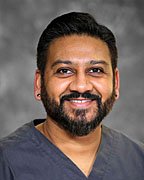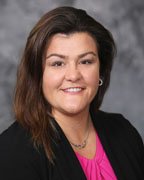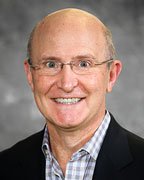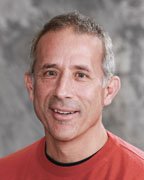Gastroenterology
SBL Gastroenterology
1000 Health Center Dr., Suite 204
Mattoon, IL 61938
217-258-4155
Fax: 217-258-4138
Hours: 8 am to 4:30 pm - Monday through Friday

Alexis Ayonote, MD, FACP |

Jaymon Patel, MD |

Nora Porter, APRN |

Stephen Steiner, MD |

Michael Uzer, MD |
Colorectal cancer (cancer of the colon and rectum) is the second leading cancer killer among men and women in the U.S. (after lung cancer). And yet, the Centers for Disease Control and Prevention estimates that as many as 60 percent of these deaths could have been prevented with regular screenings.
Colorectal cancer screening saves lives. However, many people who are at risk for the disease are not being screened according to national guidelines. Many people are afraid of the procedure, but there’s really no reason to be SBL Gastroenterologist Alexis Ayonote, MD, said. “It’s well worth the time and any possible inconvenience to have the screening. Too many people think ‘I’m healthy so I don’t need to do anything.’ The message is don’t wait until you’re sick and having symptoms to be screened. Colorectal cancer is a very preventable disease,” he said.
When to see a gastrologist:
Stephen Steiner, MD, suggests patients experiencing symptoms such as: blood in the stool, frequent heartburn, abdominal pain, trouble swallowing, and change in bowel habits may benefit in seeing a gastroenterologist.
What is IBS and Non-ulcer Dyspepsia?
Gastroenterologists see many patients for IBS and non-ulcer dyspepsia. Stephen Steiner, MD, talks about the causes and treatments of these common issues, and why, at times, it is challenging to diagnose.
What age to receive a colonoscopy:
Did you know that the age for your first colonoscopy is 45? It used to be age 50. Stephen Steiner, MD, explains why, and how family history may influence when you need to have your first colonoscopy.
Colonoscopy prep options
Stephen Steiner, MD, addresses the different types of available colonoscopy preps. He touches on the factors that determine what type of prep patients would take prior to their procedure.
Have a Healthy Colon
Raise the Roughage
Eat more foods with fiber – fruit and vegetables in a variety of colors. Doctors recommend five or more servings a day.
Drink Up
Drink 8 to 10 glasses of water a day.
Get Moving
Exercise regularly - at least 30 minutes most days of the week.
Get screened
If you are over 50, talk to your doctor about a colonoscopy to screen for colon cancer.
To learn more about colonoscopy and other services provided by the Gastroenterology and Special Procedures Department, call (217) 258-4155. Appointments with our Gastroenterologists are by referral from your primary physician only.
Colonoscopy | Colorectal Cancer Risk Assessment | Upper GI Endoscopy
